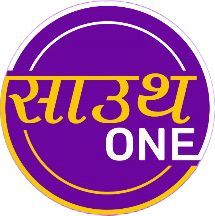The Puri Jagannath Temple, revered by Hindus worldwide, has become the epicentre of a heated controversy involving prominent Instagram influencer Curly Tales, also known as Kamiya Jani. The unfolding saga has sparked outrage, with political and religious dimensions adding fuel to the fire.
In an unexpected turn of events, Kamiya Jani found herself in the midst of controversy when she visited the Jagannath temple to promote the sacred Sri Maha Prasad. Accompanied by Odisha’s 5T chairman, VK Pandian, the presence of this influential duo raised eyebrows and set the stage for a brewing storm.
BJP’s Allegations and Calls for Legal Action
As the video of Jani’s temple visit surfaced, the Bharatiya Janata Party (BJP) wasted no time in pointing fingers, alleging that Kamiya Jani is a beef eater. The party accused VK Pandian, a Tamil leader in the Biju Janata Dal (BJD), of attempting to undermine Odia faith. Demanding swift action, the Odisha BJP urged the registration of a case under IPC Section 295 A against both Jani and Pandian, advocating for their immediate arrest.
BJP demands arrest of YouTuber Kamiya Jani for eating ‘mahaprasadam’ after allegedly consuming beef pic.twitter.com/78ZwNVRSH8
— The Times Of India (@timesofindia) December 22, 2023
Central to the controversy is the BJP’s claim that Kamiya Jani promoted beef consumption, as evidenced by a screenshot from one of her previous videos. This accusation starkly contrasted with Jani’s recent endorsement of the Puri Srimandir Heritage Corridor project and Mahaprasad alongside BJD leader Pandian. The party expressed outrage, accusing Pandian of compromising the sacred sanctity of the temple by allowing a purported “beef promoter” onto the premises.
The sacred sanctity of Puri Srimandir, rich with historical and spiritual heritage, has been shamefully disregarded by VK Pandian, the chairman of 5T, who callously allowed a beef promoter into the revered premises of Jagannath Mandir. @bjd_odisha remains indifferent to the… pic.twitter.com/XGmrQVbFp9
— BJP Odisha (@BJP4Odisha) December 21, 2023
Jatin Mohanty, the General Secretary of Odisha BJP, echoed the sentiments of millions of Hindus, emphasizing the temple’s traditions, which require individuals who consume beef to undergo penance before entering. Mohanty accused VK Pandian of facilitating Kamiya Jani’s entry without adhering to these traditions, demanding immediate government action and an apology from the temple administration.
A few months back, Kamiya Jani was asked to make a cultural Documentary featuring PM Modi. Nobody shared an old video of her having food in Kerala. Nobody questioned when she made a video with BJP Minister Anurag Thakur. Why now? pic.twitter.com/w3MyeAnl0X
— Mohammed Zubair (@zoo_bear) December 21, 2023
Kamiya Jani’s Clarification and the Lingering Tension

In response to the allegations, Kamiya Jani took to Instagram to vehemently deny being a beef eater. Despite claiming to have never eaten beef personally, her channel had, on several occasions, promoted restaurants and places that serve beef items. The situation remains tense, with Jani emphasizing her mission as an Indian to showcase the country’s culture and heritage to the world.
Also Read: Naveen Patnaik seems to be losing the plot after two decades
Political Response and Warning
Union Minister Dharmendra Pradhan weighed in on the controversy, cautioning against actions that may hurt the sentiments of Lord Jagannath’s devotees. He stressed the significance of Mahaprabhu Shri Jagannath in the lives of Odias and Sanatan Dharma followers, asserting that no one should play with their sentiments knowingly or unknowingly.
On YouTuber Kamiya Jani's video on Puri Jagannath temple, Union Minister Dharmendra Pradhan says,"For all Odias and Sanatan Dharma followers, Mahaprabhu Shri Jagannath holds great significance. No one should do anything that hurts the sentiments of Lord Jagannath's devotees.… pic.twitter.com/OejDSFrYkD
— ANI (@ANI) December 23, 2023
The controversy surrounding the Puri Jagannath Temple reflects a clash of faiths and a struggle for religious sanctity. As the drama unfolds, it awaits the delicate balance between freedom of expression and the sacredness of religious sites, leaving the public and authorities grappling with questions of faith, respect, and cultural sensitivity.







